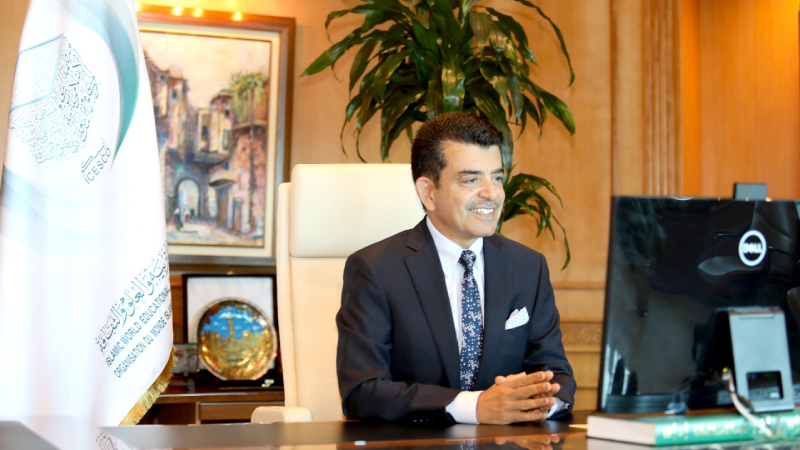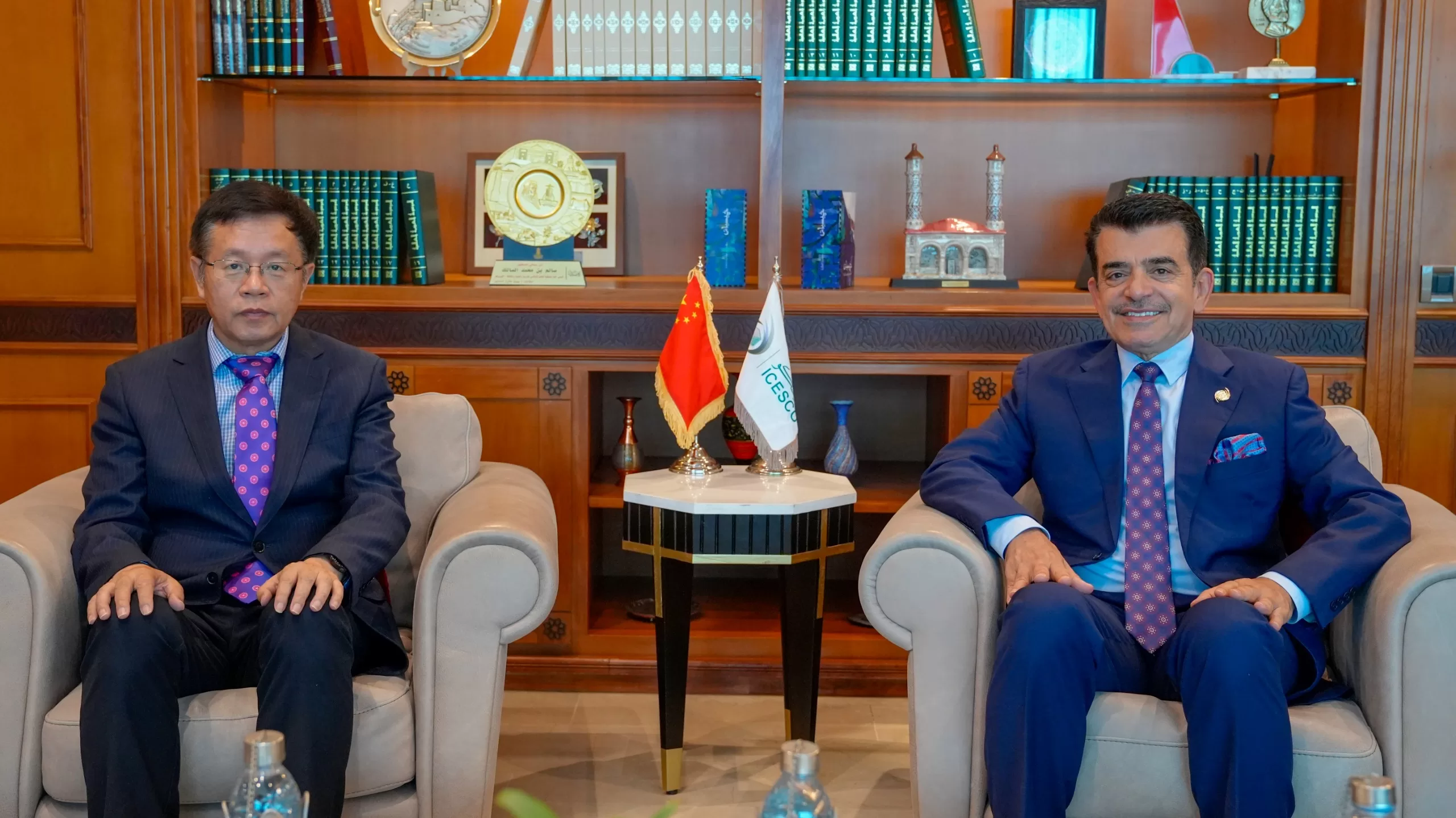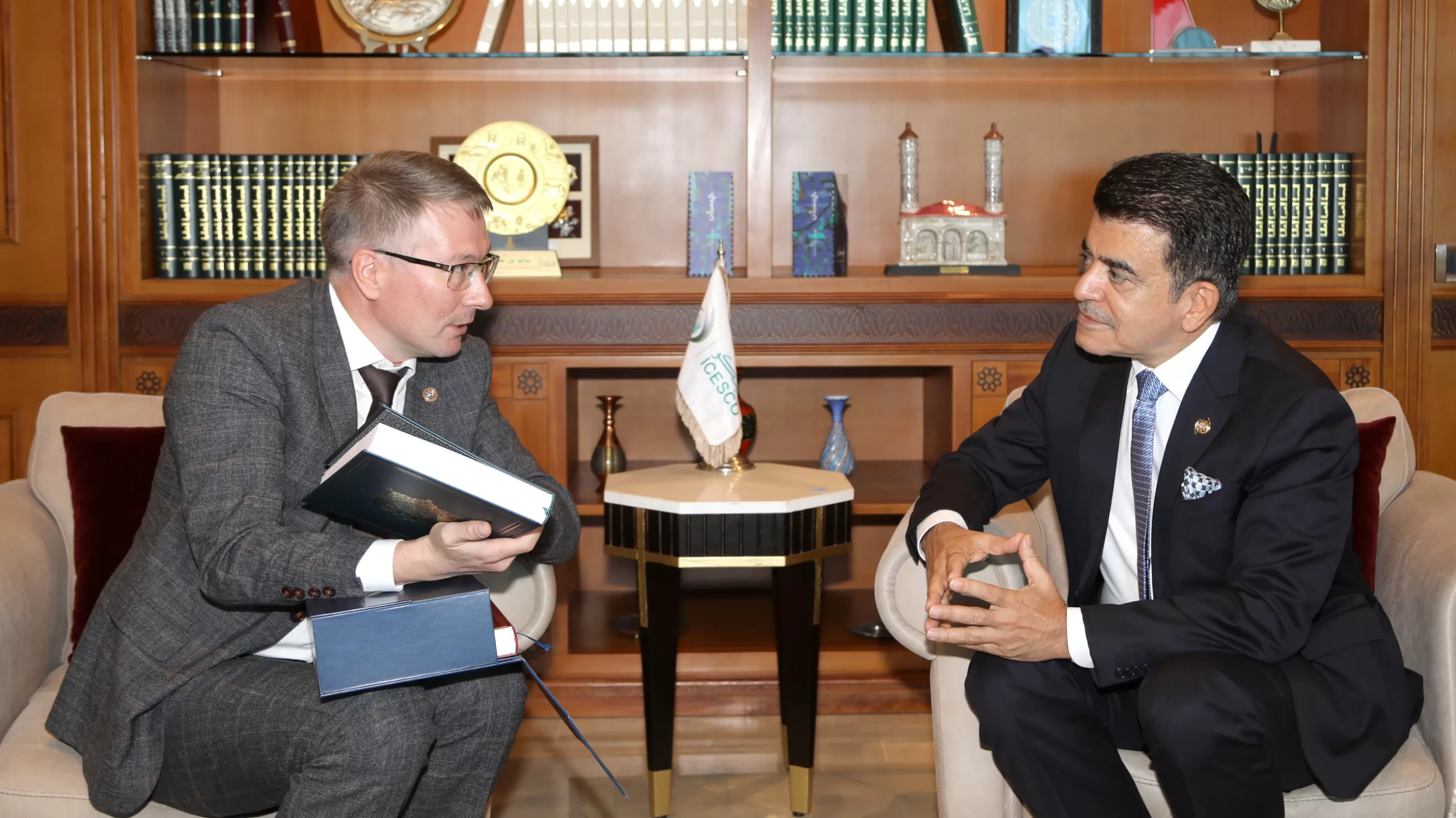
ICESCO Director-General: Integrating AI applications in education, an opportunity for overcoming major educational challenges

19 June 2020
Dr. Salim M. AlMalik, Director-General of the Islamic World Educational, Scientific and Cultural Organization (ICESCO), underscored that Integrating AI applications in education is an opportunity for overcoming major educational challenges, stressing that artificial intelligence should not raise concerns as much as present a way to facilitate the teaching process and improve the means of information transmission using easy and modern tools.
This was a point made by the Director-General in his address at the Webinar on “Artificial Intelligence and Education: Best Practices and Policy recommendations,” held in cooperation with King Abdulaziz University and the AI Civic Forum. He added that at the peak of the COVID-19 spread, more than 90% of students across the globe were impacted, as this pandemic exposed the myriad of problems faced by the educational systems, most notably the weak educational policies, the dominance of face-to-face education, and the unpreparedness of most countries to provide distance education, given the lack of curricula digitization.
In the same vein, the Director-General posed several questions that compel us to anticipate the future of education and shed light on the future role of AI and the opportunities it will provide in this field. “How will the world look like in light of a projected demographic growth? In light of steady population growth from eight billion peoples in 2019 to around 10 billion people in 2050? How will the world be like in light of expectations that about 223 million people between the ages of 5 and 19 will remain below the extreme poverty line by 2030? How will the reality of the right to education be like given the close relationship between the issues of school dropout and wastage, poverty, and social vulnerability? What is the role of AI in light of the rise in the revenues of the AI global market, which are expected to reach 11.1 billion dollars?” the Director-General wondered.
Moreover, Dr. AlMalik stated that linking AI to education poses many challenges, most notably balance between AI for education and education for AI, mainstreaming the use of this technology, and drafting a framework for its ethical use to protect the privacy and ensure human control over it. He maintained that in light of these challenges and major trends, the future of AI in education might take one of the following forms:
1- Relative change: keeping the current teaching methods and employing training for AI, so that learners can acquire the necessary skills to enter the job markets of the future;
2- Smart dominance hypothesis, which is the undesirable future where the machine dominates the human;
3- Balance and good governance hypothesis, which is the best formula where there is balance between education for AI and AI for education, and good governance to integrate AI in the educational system is adopted.
The Director-General concluded that being aware of these matters, and in light with its new vision that keeps up with future changes, ICESCO:
1- Started conducting a study on the role of AI in education in the Member States;
2- Conducted a study on AI rules;
3- Created an AI center at ICESCO;
4- Assisted Member States in anchoring AI applications.




